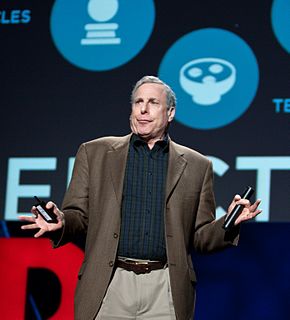A Quote by Frank Herbert
The function of science fiction is not always to predict the future but sometimes to prevent it.
Related Quotes
To be a science fiction writer you must be interested in the future and you must feel that the future will be different and hopefully better than the present. Although I know that most - that many science fiction writings have been anti-utopias. And the reason for that is that it's much easier and more exciting to write about a really nasty future than a - placid, peaceful one.
I think that prog rock is the science fiction of music. Science fiction speculates on what the future might be and look like and how we'll get there, and yet there's always a central theme of humanity, or there should be. Progressive rock has the same concept of exploration into the parts of the music world that hasn't been explored.




































